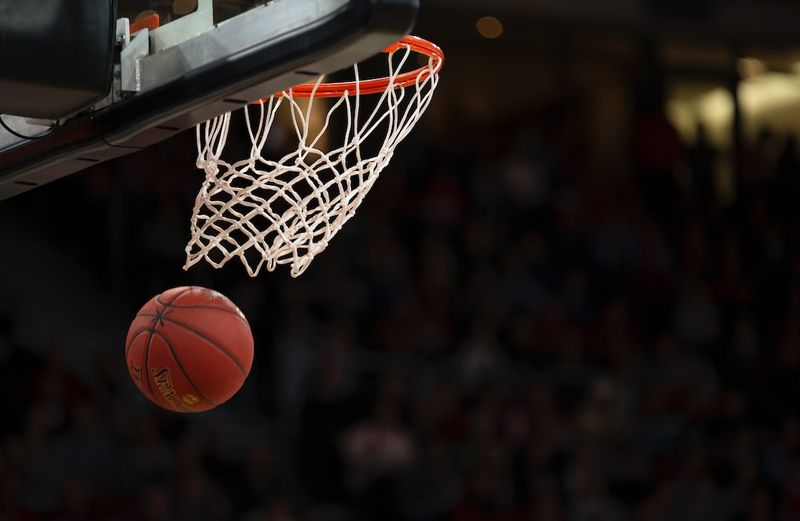Dennis Rodman’s Comments on Larry Bird: A Reflection of Changing Times in the NBA
The Controversial Remarks
Former NBA player and controversial figure Dennis Rodman ignited a new debate when he recently commented on the playing abilities of Boston Celtics legend Larry Bird. In a conversation with DJ Vlad on VladTV, Rodman disputed Gilbert Arenas’ claim that Bird would defeat LeBron James in a one-on-one matchup and went on to suggest that Bird’s game would be better suited for Europe in the modern era.
Rodman asserted, “If Larry Bird played in this era, I think he’d be in Europe. His game was fit for Boston at that time in the ’80s and stuff like that. Today’s world, oh hell no. There’s no way.”
The Evolution of the NBA
While Rodman’s comments may appear dismissive and disrespectful to Bird’s legacy, they provide an opportunity to reflect on the evolution of the NBA and how the game has changed over time. The league has undergone significant transformations in terms of style of play, rules, and athleticism, making it difficult to directly compare players from different eras.
In the 1980s, Bird’s era, the game was marked by physicality and a slower pace compared to today’s fast-paced, three-point-oriented style. Bird’s exceptional shooting, basketball IQ, and clutch performances were key to his success in that era. However, the emphasis on athleticism, speed, and three-point shooting in today’s game could potentially pose challenges for a player with Bird’s skill set.
The Impact of European Basketball
Rodman’s remark about Bird potentially playing in Europe reflects the growing talent and influence of European players in the NBA. The past few decades have seen an influx of European players who have made significant contributions to the league. The European style of play, which emphasizes fundamentals, team-oriented basketball, and shooting proficiency, has become a valuable asset in the modern NBA.
It is worth noting that top European players, such as Dirk Nowitzki, Pau Gasol, and Luka Dončić, have had successful careers in the NBA, proving that European players can thrive in the league’s current landscape. However, this does not diminish Bird’s greatness or his impact on the game during his era.
Rodman’s Comparisons and Critique of Bird
Amid his controversial remarks, Rodman did offer praise to Nikola Jokic, the Denver Nuggets’ star center and the most recent recipient of the NBA Finals MVP award. Rodman claimed that Jokic, with his shooting ability and versatility, might be considered superior to Bird in today’s NBA.
While Jokic’s talent is undeniable, it is important to consider that Bird’s accomplishments include three NBA titles, two Finals MVP awards, three regular-season MVP awards, and 12 All-Star appearances. Bird’s impact on the game cannot be overlooked, and his achievements make him one of the greatest players in NBA history.
Misguided Criticism and Reflection
Rodman’s previous comments criticizing Bird in the 1987 Eastern Conference finals, where he suggested that Bird’s success was solely due to his race, have been widely condemned. In retrospect, Rodman admitted that his remarks stemmed from frustration rather than genuine hostility. He acknowledged Bird’s greatness and expressed remorse for his earlier comments.
These past controversies should not overshadow or undermine Bird’s contributions to the sport. Bird’s legacy rests on his exceptional skills, fierce competitiveness, and basketball intelligence, characteristics that continue to be admired by fans and fellow players alike.
Editorial: Appreciating Greatness in the NBA
Dennis Rodman’s comments on Larry Bird serve as a reminder of the intricacies of comparing players across different eras. The NBA has evolved, and each era has its own challenges, style, and dominant players.
It is important to appreciate the greatness of players like Bird, who excelled in their respective eras and left an indelible mark on the sport. While it is tempting to engage in hypothetical comparisons and debates, it is imperative to remember that every era has its unique circumstances and that greatness cannot be reduced to statistical analysis or theoretical matchups.
As fans, we should celebrate the skills, accomplishments, and impact of players from various eras without diminishing the achievements of those who came before or after them. This appreciation encourages a holistic understanding of basketball history and helps nurture a sense of respect and admiration for the game’s legends.
Advice for Evaluating Players Across Eras
When evaluating players from different eras, it is crucial to consider the context in which they played. Here are some guidelines to navigate these comparisons:
1. Understand the Era
Familiarize yourself with the style of play, rules, and challenges faced by players in each era. Recognize that the game evolves, and what may have been prioritized in one era might be less significant in another.
2. Appreciate Individual Skills
Recognize and appreciate the unique skills and abilities that players bring to the table. Every era produces players with different skill sets, and it is important to value the strengths and contributions of each individual.
3. Consider Impact and Achievements
Take into account a player’s impact on the game and their accomplishments. Championships, individual awards, and overall influence on the sport are important factors when evaluating greatness.
4. Embrace Subjectivity and Enjoy the Debate
Remember that comparing players from different eras is subjective and inherently speculative. Engage in respectful debates and discussions while acknowledging the diversity of opinions about different players.
By following these guidelines, we can appreciate the greatness of players like Larry Bird, while also recognizing the talents of current and future NBA stars. Ultimately, the NBA is a dynamic, ever-changing league, and each era brings forth its own remarkable individuals who deserve recognition and respect.

<< photo by Markus Spiske >>
The image is for illustrative purposes only and does not depict the actual situation.




